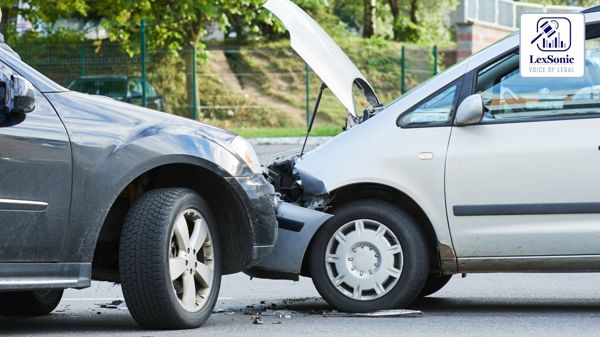Criminal Appeal Dismissed: Court Confirms Conviction in Fatal Road Accident Case.
30 April 2024
Rash driving or riding on a public way >> Criminal Law | Motor Accident >> Family Law
In a significant legal development of N. Ramesh v/s State rep by The Inspector of Police, D-6 Anna Sqaure Police Station (Traffic Investigation) Chennai, the High Court upheld the conviction and sentence of the appellant in a criminal appeal concerning a fatal road accident. The judgment, rendered on 29th July 2015 by the IV Additional Sessions Judge in Chennai, holds the accused responsible for causing serious injuries and the death of a motorcyclist due to rash and negligent driving. Despite challenges raised regarding the evidence of drunken driving and medical negligence, the appeal was dismissed, confirming the trial court's decision.
Case Overview:
The case stemmed from a tragic road accident that occurred on 26th January 2012. The appellant, in an inebriated state, was driving a Santro car (Registration No. TN 07 AW 2315) at high speed on Kamarajar Salai. The vehicle veered across the road beyond the yellow line, colliding with multiple vehicles: two motorcycles and an auto-rickshaw. As a result, several individuals were injured, including Thameem Ansari, who later succumbed to his injuries.
According to the prosecution's case, the appellant's actions on a busy road led to the tragic incident. Eyewitnesses testified that the appellant was driving recklessly, while police reports confirmed the collision's severity. Though the prosecution did not provide medical evidence of the appellant's intoxication, other circumstantial evidence pointed to rash driving as the cause of the accident.
Court Proceedings and Evidence:
During the trial, various individuals, including victims of the accident (P.W.1, P.W.2, and P.W.3), and eyewitnesses (P.W.6, P.W.8), provided testimony supporting the charge of rash and negligent driving. They detailed the events leading up to the accident and affirmed the appellant's reckless driving. Despite the absence of direct evidence proving the appellant's drunken condition, the court found the speed at which the vehicle was driven, coupled with the appellant’s crossing of the road's yellow line, sufficient to establish fault.
The defense raised several points, including the claim that the accident was caused by a mechanical failure in the car's brakes and that the victim's death resulted from medical negligence. However, the court found the medical records, including the postmortem report, to be clear in attributing the death to the injuries sustained in the accident, and not medical errors.

Legal Findings:
In its judgment, the court focused on the core issue of whether the appellant's driving was indeed rash and negligent. The testimony from the injured parties and eyewitnesses, coupled with the fact that the vehicle struck multiple objects while crossing over to the wrong side of the road, led the court to affirm the appellant's culpability. The court also noted that the absence of a blood alcohol test did not diminish the evidence of reckless driving, especially considering the dangerous conditions and the appellant's inebriated state.
The claim of medical negligence was also dismissed. The court found that the victim's death was caused by the injuries sustained in the accident, not any deficiencies in medical treatment.
Conclusion:
The appellant’s appeal against the conviction and sentence was rejected, and the trial court’s judgment was upheld. The appellant was ordered to surrender before the IV Additional Sessions Judge within 15 days to serve the remaining sentence. The case highlights the importance of considering circumstantial evidence and eyewitness testimonies in road accident cases, even in the absence of direct proof such as a blood alcohol test.
The High Court also acknowledged the valuable assistance provided by the appellant’s legal aid counsel, Mr. K. Sudheer Ram, and awarded him a fee for his service in the case.
This case serves as a reminder of the critical need for responsible driving, especially during festive and busy periods, and the severe consequences of rash and negligent driving.
